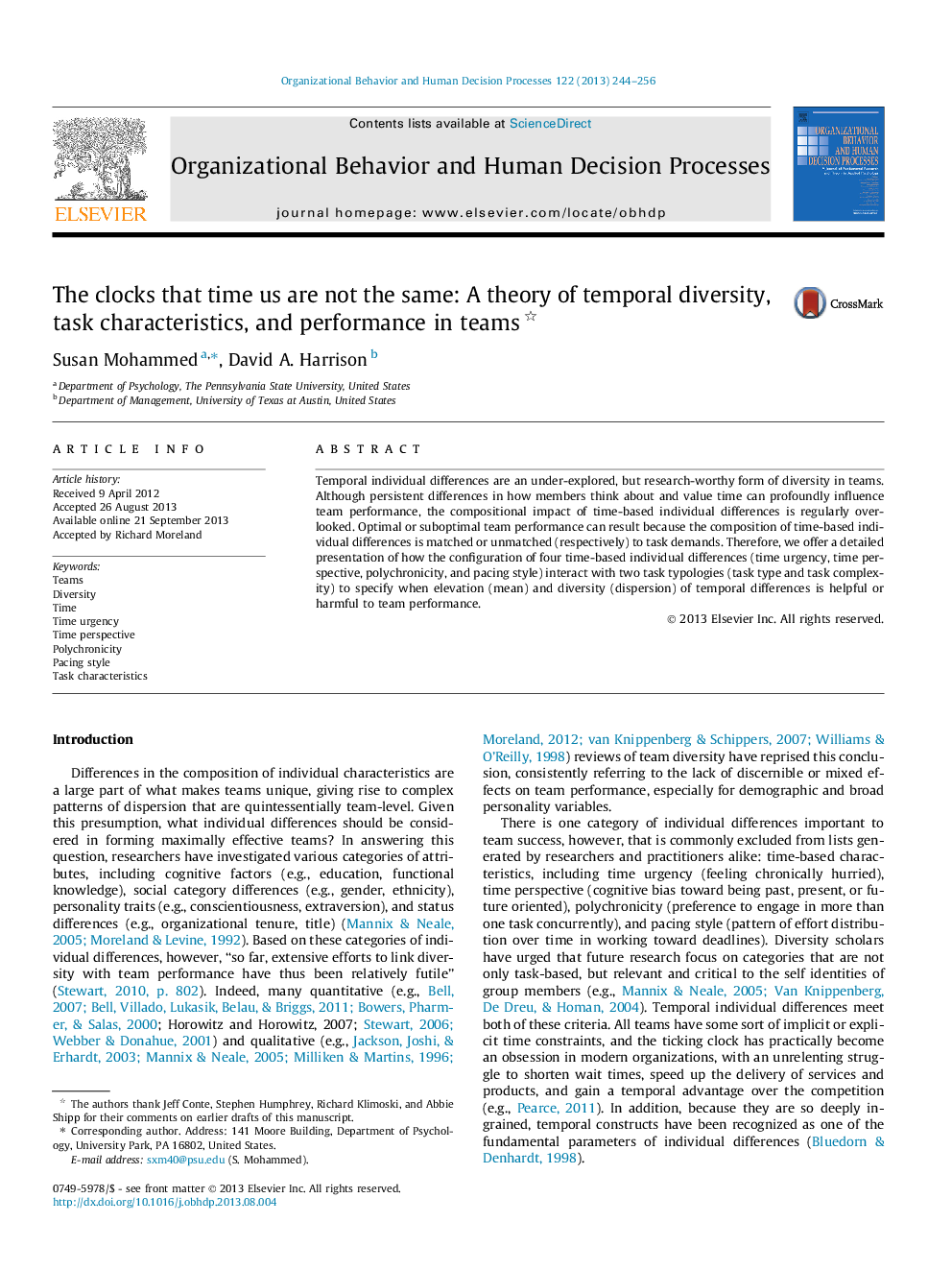| Article ID | Journal | Published Year | Pages | File Type |
|---|---|---|---|---|
| 10439869 | Organizational Behavior and Human Decision Processes | 2013 | 13 Pages |
Abstract
Temporal individual differences are an under-explored, but research-worthy form of diversity in teams. Although persistent differences in how members think about and value time can profoundly influence team performance, the compositional impact of time-based individual differences is regularly overlooked. Optimal or suboptimal team performance can result because the composition of time-based individual differences is matched or unmatched (respectively) to task demands. Therefore, we offer a detailed presentation of how the configuration of four time-based individual differences (time urgency, time perspective, polychronicity, and pacing style) interact with two task typologies (task type and task complexity) to specify when elevation (mean) and diversity (dispersion) of temporal differences is helpful or harmful to team performance.
Related Topics
Social Sciences and Humanities
Business, Management and Accounting
Marketing
Authors
Susan Mohammed, David A. Harrison,
